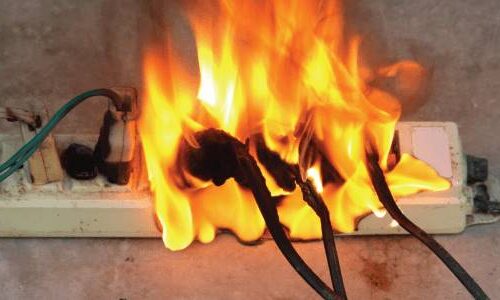
Anxiety is the most common mental health diagnosis in the United States. More than 40 million adults are affected, and even though the disorders are treatable, less than 40% of people seek treatment. Unfortunately, when adults don’t realize they’re suffering from anxiety, or if they choose not to treat it, they can pass the symptoms on to their children. Luckily, some self-awareness and a bit of knowledge can help you not to do the same.
Work on Your Communication
Consider how parenting techniques are changing. Just a few decades ago, demanding children complied with rules without questioning them was standard. These days, child psychology experts agree that blind compliance is often anxiety-inducing, not to mention makes it harder for children to know how to stand up for their own needs as adults. While it’s necessary to set rules for your children, it is important to communicate as well. Explain why you create the rules you do. Remember, the older your children get, the more they will question your rules. Sometimes, renegotiation can be beneficial. Even if you decide not to negotiate on rules, consider how your parenting style could affect your children. There are different types of parenting styles, but they should all be rooted in love, understanding, and communication. These traits make your children feel safe and help them to know they can come to you with larger issues.
Explain Why You’re Anxious
Children pick up on the feelings of the adults around them. If you’re exhibiting signs of anxiety, such as seeming sad or irritable, your kids are likely picking up on it. Instead of claiming nothing is wrong when they can tell otherwise, try explaining your anxiety to your kids. If you can’t do it in the moment, do so afterward. Sit your child down and remind them about earlier in the day when you were frustrated or otherwise upset. Explain what was going on and why you felt that way. Of course, you don’t need to do this about adult issues, but consider doing so when it comes to things like feeling anxious about being late for a doctor’s appointment or other situations that are easy for kids to understand.
If your children are old enough to understand, you might even consider explaining anxiety to them when you aren’t feeling anxious at all. You can tell them what anxiety is, situations that can sometimes cause you to feel anxious, and what you do to manage your anxiety. This shows them that you are human, your emotions are valid, and that they are allowed to have emotions as well.
Consider a Holistic Anxiety Aide
Sometimes, anxiety is simply too much to manage on your own. People with severe anxiety often us prescription medication, but what if your own experience with it falls somewhere in the middle? Those who have mild anxiety may consider natural anxiety pills. Homeopathic remedies for anger and irritability, which are two of the most common ways anxiety manifests, can help you and your children to manage symptoms and better maintain anxiety. These supplements also help to reduce hyperactivity and impulsivity in people of all ages. They don’t require a prescription, can enhance focus, and have no harmful side effects.
Don’t let sadness, irritability, or other symptoms of anxiety take over your life or the lives of your children. Talk to your doctor to learn about holistic supplements or other treatment options.

